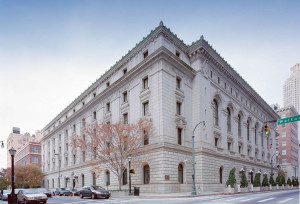
Eleventh Circuit Court of Appeals, Atlanta
In Bivens v. Select Portfolio Servicing, Inc., No. 16-15119 (11th Cir. Aug. 17, 2017), the Eleventh Circuit upheld the rejection of the homeowner’s Real Estate Settlement Procedures Act (“RESPA”) claim, all because he mailed a letter to the wrong address.
Bivens received a letter from Select Portfolio Servicing (“SPS”) indicating it would be his new loan servicer on his home loan. Â Through his attorney, he wrote a letter to SPS–an attempt at a “qualified written request” (“QWR”) under RESPA–“demanding proof of its authority to service his loan.” Â But he did not send the letter to the address SPS had designated for receiving QWRs–instead he used a “general correspondence” address. Â SPS responded, but did not provide Bivens all the information he requested, so Bivens sued SPS for an alleged RESPA violation.
The district court granted summary judgment for SPS because Mr. Bivens had failed to mail his QWR to the designated address.  On appeal, the 11th Circuit agreed and affirmed.  The 11th Circuit recognized that the Department of Housing and Urban Development’s regulations “authorized servicers to ‘establish a separate and exclusive office and address for the receipt and handling of qualified written requests.'”  The Secretary of the Department, in a rulemaking notice, had also explained that if a servicer did establish such an office, the borrower was required to “deliver its request to that office in order for the inquiry to be a ‘qualified written request.'”  Bivens, undisputedly, did not.
The 11th Circuit concluded that SPS had properly designated an exclusive address for receiving QWRs. Â It rejected Bivens’ arguments that he was not sufficiently notified of the specific address, and dismissed Bivens’ assertion that the common mail processing at that same address rendered it non-qualifying as a “separate and exclusive office” under the regulations. Â In sum, the 11th Circuit held that Bivens’ failure to mail the QWR to the designated address relieved SPS of any duty under RESPA to respond to it.
Bivens’ claim failed not because of substantive merit but on a techncality, that probably could have been avoided through more careful reading of important notices or a better understanding and knowledge of applicable regulations. Â Don’t let this happen to you! Â “Technicalities” are one of many reasons to consult an appellate attorney early on–an extra set of eyes that can reduce cost, expedite proceedings, and potentially avoid a later call to a malpractice carrier.

